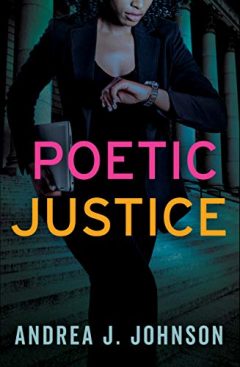So you’ve written your hundredth magazine pitch only to be rejected again. This is where most writers quit, but smart authors know that a successful pitch goes beyond a clean essay and a flashy idea. You need content that not only compels the editor to inquire for more but also provides a definitive point of view that will appeal to readers for years to come. But in pursuit of this delicate balance, many writers unknowingly commit a series of sins that equal rejection before the editor finishes the first sentence. Here are five of the most common mistakes.
You don’t do your research.

Review the tone and style of each publication on your wish list. How long are the articles? Are submissions limited to certain subjects? Familiarize yourself with the magazine’s content, and discover if they’ve already published articles similar to your pitch. One way to do this is to Google search their website using “site: publication.com [plus your pitch’s keywords].” This should bring up any material already written about the topic so that you don’t rehash old ground.
You don’t know your audience.
For example, if you’re crafting a pitch for Bustle, they look for lifestyle, fashion, beauty, and entertainment pitches only. That means, the essay you’ve written comparing The Fountainhead to the works of Friedrich Nietzsche isn’t going to fly no matter how many times you insert “Chanel” or “Hollywood” into the text. Remember, understanding your readers’ needs will increase the quality and impact of your pitch.
You don’t provide enough details.
A good pitch should be specific. Create a clear angle that defines exactly how your story will attract readers. Include web links or research, especially if the pitch involves a product or procedure. For example, if you’re going to write an article about an exercise fad, outline the details. Don’t just pitch the question, “Peloton: Does It Work?” Give the editor a concrete hook on which to base her expectations. Do you have expert data from Johns Hopkins? Did you do a survey of 100 fitness experts? Have you and six of your closest friends drawn numbers from one to seven and vowed to work out that many times a week for a month? Depending on the publication, all of those approaches have merit. But the key is to decide how you’ll answer your own question (and why that question is important) before you pitch the article. Don’t expect the publisher to make those decisions for you. If you have personal experience, flaunt it. If you need experts, find them. Remember, there are thousands of other writers out there with the same idea vying for the same spot. Show the editor why this is a pitch that only you could write.
You don’t do your due diligence.
Pick a topic you’re passionate about. Don’t pitch a product review if you’ve never used the item. Don’t herald the merits of a diet you’ve never tried. Don’t pitch personal experiments you haven’t completed. No editor wants to work with hypotheticals. They want to know that the article you pitched is the one they’re going to get. Nothing is worse than having to extend a deadline because the writer failed to investigate—or worse, her hypothesis is incorrect, so she has to scrap the entire concept.
You don’t craft a good headline.
Don’t wait until you’ve gotten the job to think about a clever title. After all, it’s the first thing the editor sees and is often the one element that helps them decide whether they’re going to read your pitch or ditch it. Strong headlines establish tone and set the groundwork for what’s to come. They should be eye-catching but still accurately convey the article’s substance.
Now, take an honest step back.
Have you committed these sins? If so, here’s your chance to turn rejection into recognition.
Bio: Andrea J. Johnson is a freelance contributor to the women’s lifestyle website Popsugar where she amassed more than 100 articles in less than a year. She is also a columnist for LitReactor, the online literary magazine dedicated to genre fiction and discussions on the writing craft. Moreover, Andrea works as the Acquisitions Editor for the RIZE Imprint at Running Wild Press, and she is the author of Poetic Justice, the first in the Victoria Justice Court Reporter Mystery series from Polis Books. Learn more about Andrea at ajthenovelist.com or on Twitter @ajthenovelist.
[…] “Five Reasons Your Magazine Pitches Get Rejected” – Blog via Funds for Writers […]